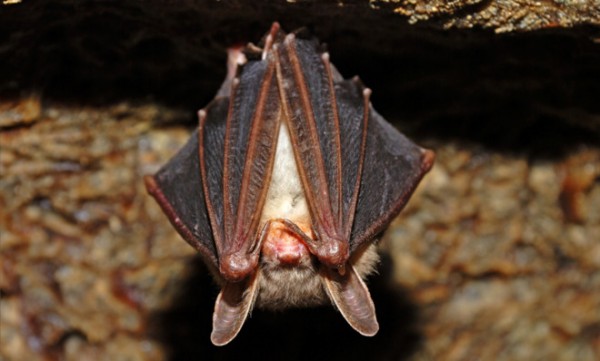Several newspapers report that over the weekend, 100,000 of the winged creatures have seemingly fallen out of the sky, littering trees, yards, and sidewalks with dead or dying animals.
The culprit in this case is apparently a scorching summer heat wave, which can wreak havoc on a bat’s fragile anatomy. “Anything over 43 degrees Celsius (109 Fahrenheit) and they just fall,” says Louis Saunders, a local conservation worker. “It’s a horrible, cruel way to die.”
The smell is becoming a nuisance for local residents, too.
The Scenic Rim Regional Council, west of Brisbane, has organized rubbish collectors to clear up the carcasses of about 2,000 bats.
Residents near Boonah’s Athol Terrace lookout say they have been putting up with the stench of the dead animals for four days.
Hundreds of bats also lie dead in trees and nearby bushes, and are being eaten by maggots.
The council today advised local residents it will not send workers into nearby bushland to collect the remaining bat carcasses, as it could cause further disruption to the nearby colony. [ABC News Australia]
Locals are advised not to touch the bats themselves, since scratches or bites can spread diseases like the lyssavirus, which can trigger paralysis and convulsions. One of the 16 patients receiving anti-viral treatment says she was scratched by a still-alive baby bat while she was clearing bat corpses out of a tree with a rake.
One man took footage when he saw over a thousand dead bats in his own backyard:

What’s more is that this isn’t even the first time the land down under has had a Hitchcockian encounter with thousands of bats ominously dropping dead. Last January, similarly hot temperatures in the south-eastern coastal city of Shoalhaven killed roughly a thousand grey-headed flying foxes, which are an especially vulnerable species.












Sign up on lukeunfiltered.com or to check out our store on thebestpoliticalshirts.com.